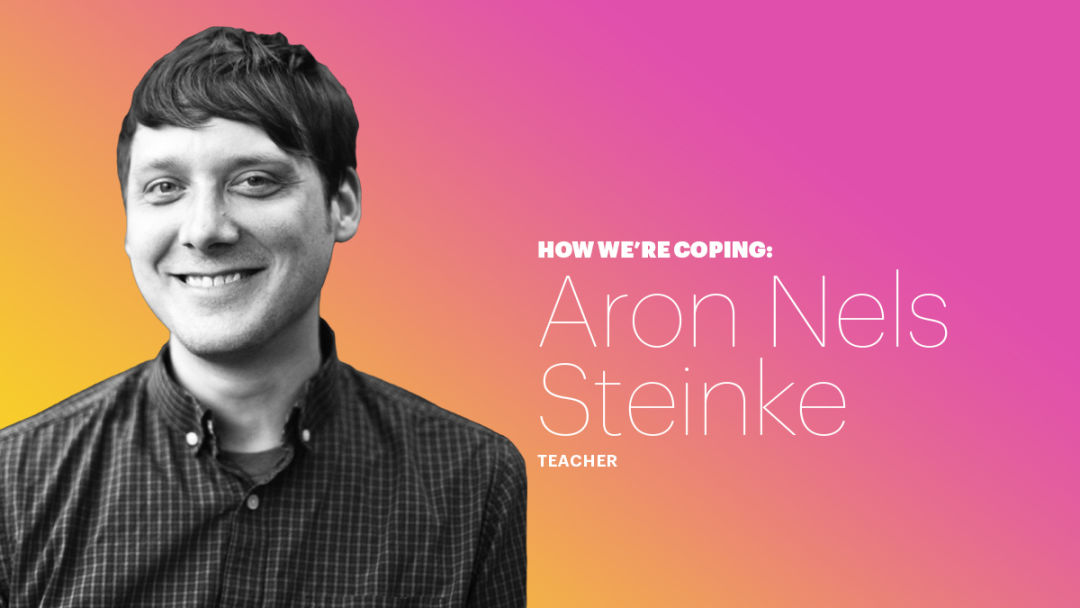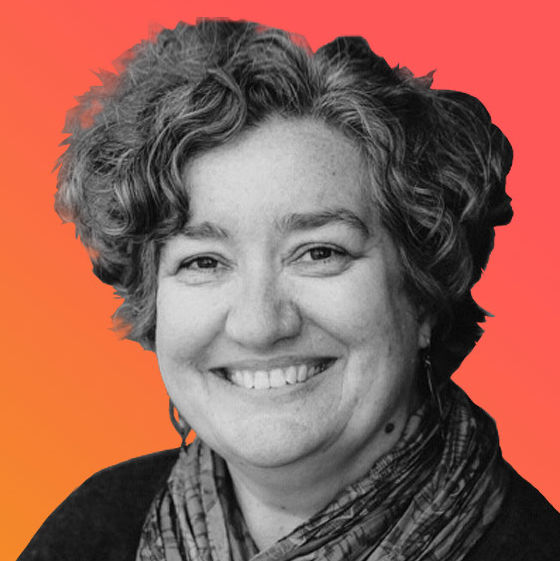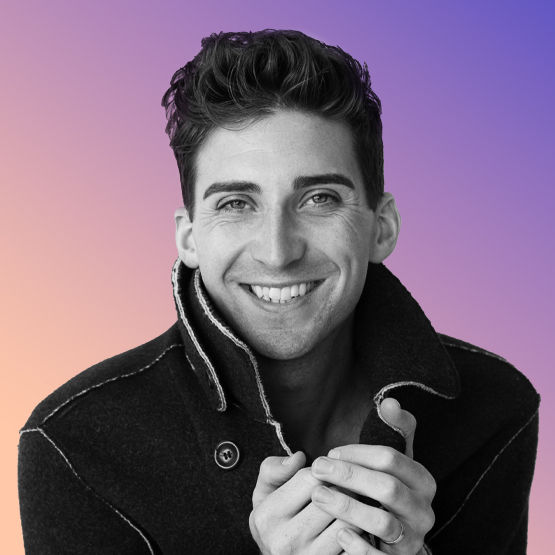A Portland Public School Teacher (and Award-Winning Graphic Novelist) on Being There for His Students Onscreen

Aron Nels Steinke
Image: Courtesy Aron Nels Steinke and Brian Breneman
Aron Nels Steinke’s first thought after hearing that Oregon schools would be closed for the remainder of the academic year was of his students’ science fair projects, sitting forlornly in his classroom at Woodstock Elementary School, never having been presented. Would he ever even get to return them, for his kids to have as a keepsake of all their hard work? He doesn’t know; nobody does. In the weeks since Gov. Kate Brown first closed schools—first for a two week extended spring break, then for six weeks, and now for good, Steinke, who is also the author of the popular Mr. Wolf’s Class series of graphic novels for middle grade readers, featuring a class of anthropomorphs and their kindly, bespectacled lupine teacher, has been keeping busy drawing, writing, parenting and figuring out the strange new world of virtual education. One highlight? Seeing his full-color, full page sketchbook about supporting independent bookstores and voracious kid readers alike during quarantine appear in the Sunday New York Times Book Review.
“It is so hard to fathom the future. I can’t believe it has been already over three weeks since we finished school. That week where the governor had us all stay home was surreal because it went from being a mild concern, to 'We have to close the schools now!' to 'I can’t believe the district hasn’t done it yet,' and then 'Thank god the governor did.'
“Learning all these new online ways of teaching, I have my own technology literacy curve that I have to navigate, the students have theirs, their parents have them, too. Some people are much more advantaged than others. Some people don’t have devices. One of the messages we have gotten from the district, and the [teachers’] union is that we are all working at this, in the same boat, but at different places. It is okay to go at your own pace. At this point, I’m doing all-class meetings once a week, using Google Meet, where we are connecting and sharing, and then we'll have smaller group meetings to work on specific skills.
“It’s very hard to teach over video chat. I’m working on recording myself giving a lesson, so the kids can watch the video on YouTube. My assignment for tomorrow was for them to write out their daily schedule and share it with me. Families—including mine—have already established their schedules, and to rework that is hard. So let’s build off what parents have built, rather than rewrite.
“In terms of the routine as a writer and artist, it’s harder to work on certain creative projects. Overall, the whole sphere of the world and the tales of global anxiety are scary and paralyzing. I want to work on a new book pitch, but are publishers even taking pitches right now? I have other already established creative projects that I am working on. The New York Times piece, I got the go to do it during spring break. I wanted to distract myself, and I was excited to be able to contribute something during this time.
[Editor's note: The autobiographical comic features Steinke buying books for his son from local children’s bookseller Green Bean Books on NE Alberta St., to help keep his book-loving son sated. It’s also a heartfelt call to support independent booksellers everywhere, many of whom are still offering curbside pickup and online orders.]
“I know it is a privileged position to be in, to be able to afford and buy new books. But if you have the means to support people on the margins, as any independent business is going to be during this crisis, their ability to survive this is dependent on us being able to continue to patronize them.
“For my son, like any kid, he has tough moments. It seems apparent that that is going to be influencing his mental health and how he relates to us. There are days where he is warm and kind and loving and days when he is grumpy and gets set off really easily. There are the sweet spots, and the cute moments. He talks to the neighborhood kid across the street. Her parents tell her to stay on her side, and then they get closer, and they warn each other, like, ‘It’s six feet, but if you sneeze, it’s 20 feet.’ I wrote down one of their whole conversations, during the second week of our lockdown. I can read it to you: 'Today is like so bad. There is an invisible barrier here that we can’t walk through. And all these stupid coronaviruses, and me being kind of sick. And now I have to wait 48 hours. And then I shall knock on the door, and we shall escape and run away from home. And there is nowhere to go.'"
















